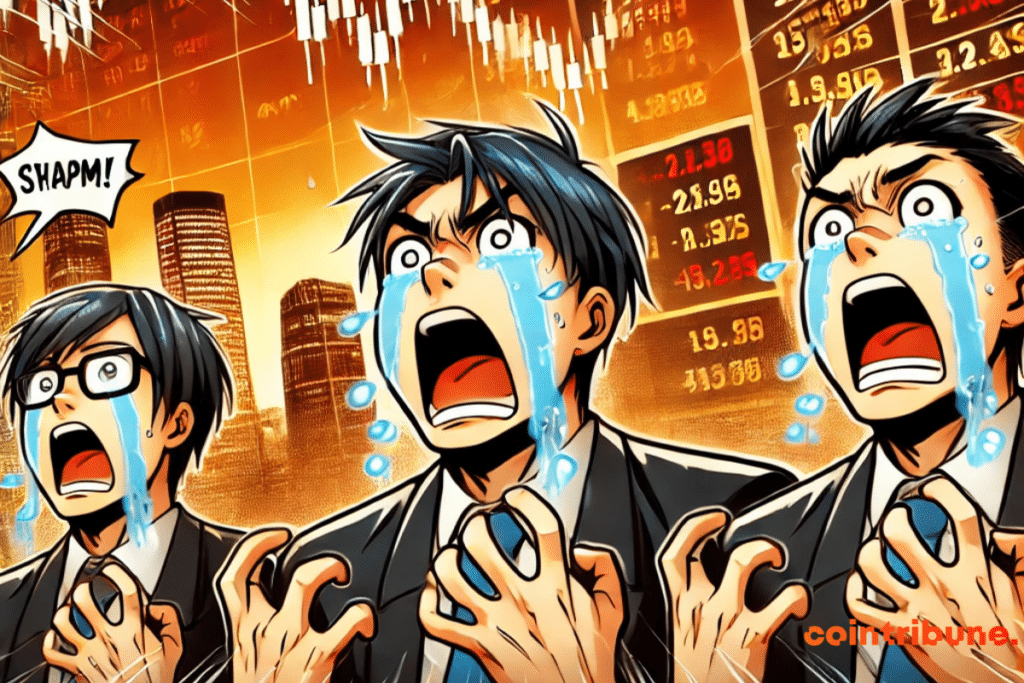Market: China Collapses, Markets Under Pressure
Asian financial markets are plunging, and this shockwave is resonating far beyond the Pacific, reaching European and American stock exchanges. While China delays deploying sufficient stimulus measures, Wall Street is trying to recover, supported by the tech sector. But for how long? The global stock market is going through a period of uncertainty, where each stock index seems suspended by upcoming announcements and economic results.

China Hesitates, Asia Collapses
Asian investors are in a real panic, largely due to the lack of concrete stimulus actions in China.
The lack of clear signals from the Chinese authorities on massive economic support is hitting major indices like the Hang Seng in Hong Kong and the Shanghai Composite hard.
This Chinese hesitation, in a context of global economic slowdown, worries the markets, which see it as a confirmation of the difficulty of the world’s second-largest economy to get back on its feet.
Companies in the technology sector and industrial stocks, once pillars of Asian growth, are particularly affected. Without significant support from Beijing, many large companies find themselves having to navigate uncertain waters.
This situation has led to a decrease in foreign investments in China and pushed investors to diversify their portfolios towards safer assets outside of Asia.
At the same time, the impact is being felt on other sectors. Commodities, often influenced by Chinese demand, are also recording significant declines.
The slowdown in Chinese demand for energy and metals weighs on global prices, amplifying the sense of vulnerability in financial markets.
Wall Street in Resilience Mode, Europe Under Pressure
On the other side of the globe, Wall Street reacts with cautious resilience. Technology giants like Apple, Microsoft, and Google, dubbed the “Big Tech,” rise to the top as safe-haven values for investors.
Their strength, fueled by robust profits and a domination of the global market, somewhat reassures investors.
However, this respite might be short-lived if the situation in Asia persists. The American market keeps its eyes glued to the upcoming economic results, notably the consumer price index and employment reports, which should guide the Federal Reserve’s (Fed) decisions.
Europe, for its part, seems to be marking time, torn between the effects of the Asian crisis and uncertainties related to its own economic situation.
European markets, especially the DAX in Germany and the CAC 40 in France, have followed the massive selling movements observed in Asia.
Indeed, the expectation of a strong announcement from the European Central Bank (ECB) or a response from China pushes investors to maintain a wait-and-see position. Meanwhile, the industrial and luxury sectors, highly dependent on imports and exports with China, are under additional pressure.
European bond yields continue to fluctuate, a sign of uncertainty that could last if China and the United States do not reveal their cards quickly. European investors, like their American counterparts, are also watching the ECB’s monetary policy, hoping for increased support. Meanwhile, The price of Saudi oil rises for Asia!
Maximize your Cointribune experience with our "Read to Earn" program! For every article you read, earn points and access exclusive rewards. Sign up now and start earning benefits.

Fascinated by Bitcoin since 2017, Evariste has continuously researched the subject. While his initial interest was in trading, he now actively seeks to understand all advances centered on cryptocurrencies. As an editor, he strives to consistently deliver high-quality work that reflects the state of the sector as a whole.
The views, thoughts, and opinions expressed in this article belong solely to the author, and should not be taken as investment advice. Do your own research before taking any investment decisions.